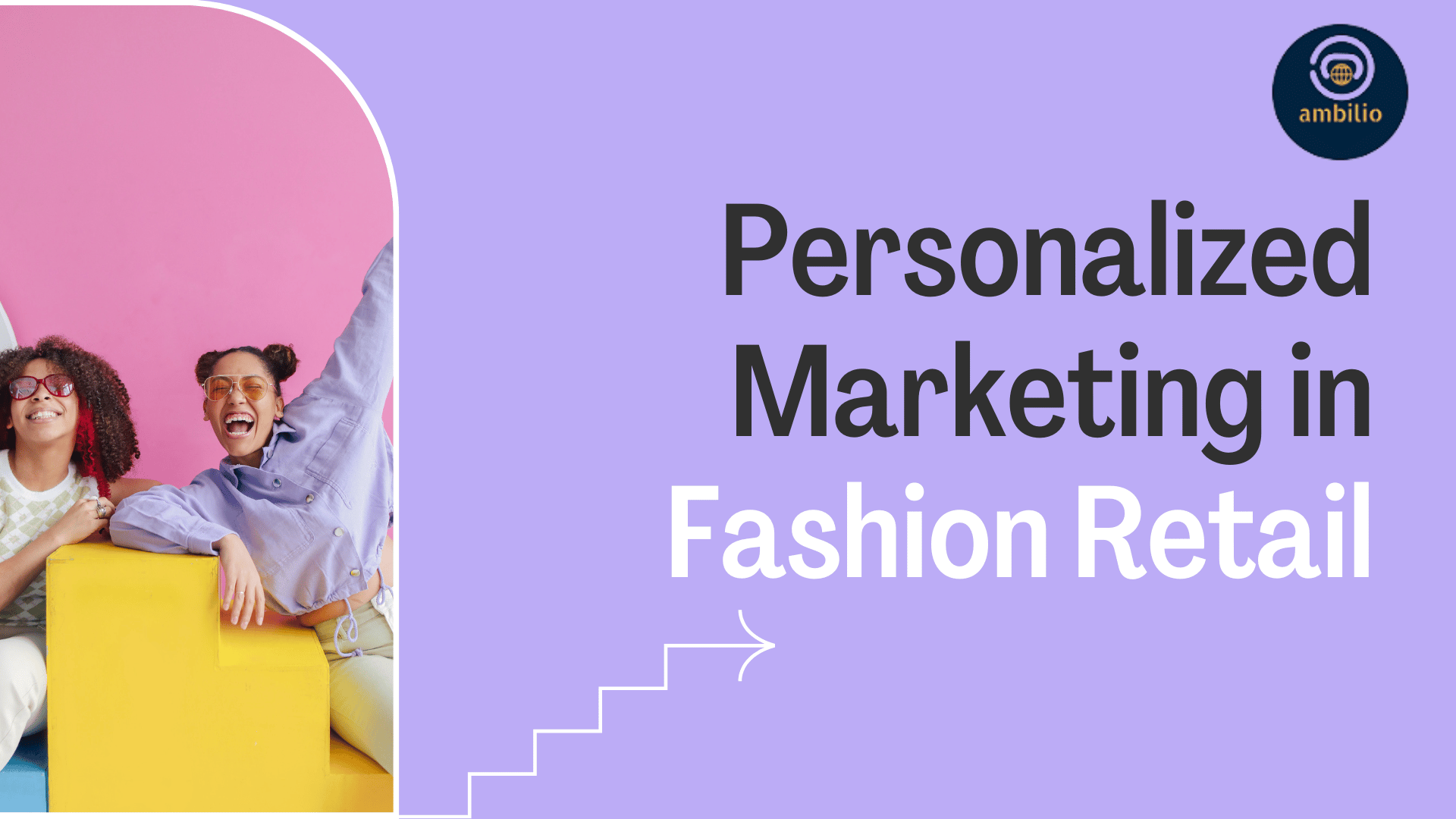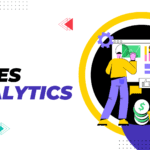Personalized marketing can be highly effective in fashion retailing as it allows retailers to tailor their marketing messages and offers to individual customers based on their preferences and behavior. By analyzing customer data such as purchase history and browsing behavior, retailers can offer personalized recommendations, promotions, and content that are more likely to resonate with each customer. This approach can lead to increased customer engagement, loyalty, and sales as customers feel understood and valued by the retailer. Overall, personalized marketing can help fashion retailers stand out in a crowded market and achieve exceptional results by delivering relevant and personalized experiences to their customers.
What is Personalized Marketing?
Personalized marketing is an approach to marketing that tailors the messaging, offers, and content to individual customers based on their preferences, behaviors, and interests. The goal of personalized marketing is to provide a more relevant and engaging experience for customers, which can lead to increased engagement, loyalty, and sales.
There are different approaches to personalized marketing, including:
Content Personalization: This approach involves tailoring the content of marketing messages and communications to individual customers based on their interests and behaviors. This can include personalized recommendations, product suggestions, and targeted promotions.
Behavioral Personalization: This approach involves using data about customer behavior, such as browsing history and purchase behavior, to personalize marketing messages and offers. This can include retargeting ads, personalized emails, and targeted social media content.
Predictive Personalization: This approach involves using machine learning and artificial intelligence to predict customer behavior and preferences. By analyzing customer data, such as purchase history and demographic information, retailers can predict which products and offers are most likely to appeal to each customer.
Contextual Personalization: This approach involves tailoring marketing messages and offers based on the context in which they are delivered. For example, a retailer might send a promotion for raincoats to customers in a city that is experiencing heavy rainfall.
Collaborative Personalization: This approach involves engaging customers in the personalization process by asking for their input and feedback. This can include surveys, quizzes, and preference centers, which allow customers to provide information about their interests and preferences.
In summary, personalized marketing is an approach to marketing that tailors messaging, offers, and content to individual customers based on their preferences and behavior. Different approaches to personalized marketing include content, behavioral, predictive, contextual, and collaborative personalization. By delivering personalized experiences to customers, retailers can increase engagement, loyalty, and sales.
AI and Analytics-based Personalized Marketing
Artificial Intelligence (AI) and analytics are key technologies used for personalized marketing. These technologies enable marketers to analyze large amounts of data and gain insights into customer behavior and preferences, which can be used to personalize marketing messages, offers, and content. Here are some techniques used for AI and analytics in personalized marketing:
Predictive Analytics: Predictive analytics involves using machine learning algorithms to analyze customer data and predict future behavior. This can be used to recommend products, suggest personalized content, and optimize marketing campaigns based on predicted outcomes.
Collaborative Filtering: Collaborative filtering is a technique used to recommend products and content based on the behavior and preferences of similar customers. By analyzing the behavior of customers with similar purchase histories or preferences, retailers can recommend products and content that are likely to appeal to each individual customer.
Natural Language Processing (NLP): NLP involves using machine learning algorithms to analyze customer text data, such as reviews, feedback, and social media posts. This can be used to gain insights into customer sentiment and preferences, which can be used to personalize marketing messages and content.
Customer Segmentation: Customer segmentation involves dividing customers into different groups based on their behavior, preferences, and demographics. This can be used to create personalized marketing messages and offers for each group, based on their unique needs and interests.
Real-Time Personalization: Real-time personalization involves using AI and analytics to deliver personalized messages and content in real-time, based on customer behavior and preferences. This can include dynamic website content, personalized email campaigns, and targeted social media ads.
A/B Testing: A/B testing involves testing different marketing messages, offers, and content to determine which version is more effective at engaging customers and driving sales. By using analytics to measure the performance of each version, retailers can optimize their marketing strategies and improve their results.
In summary, AI and analytics are used in personalized marketing to analyze customer data, predict behavior, recommend products and content, segment customers, personalize messages and content in real-time, and optimize marketing campaigns. These techniques help retailers deliver more relevant and engaging experiences to their customers, leading to increased engagement, loyalty, and sales.
Personalized Marketing in Fashion Retail
Analytics and AI can be used for personalized marketing in fashion retailing by analyzing customer data and behavior to provide personalized recommendations, promotions, and content. Here’s an example of how these techniques can be applied in practice:
Let’s say a fashion retailer wants to increase sales of a new line of clothing. Using analytics, the retailer can analyze customer data, such as purchase history, browsing behavior, and demographic information, to identify customers who are likely to be interested in the new line. The retailer can then use AI-powered algorithms to predict which products and offers are most likely to appeal to each individual customer.
For example, let’s say the retailer identifies a customer named Sarah, who has a history of purchasing dresses and accessories. Based on her purchase history and browsing behavior, the retailer can predict that Sarah is likely to be interested in the new line of clothing. Using collaborative filtering, the retailer can recommend specific products and accessories that are likely to appeal to Sarah based on the behavior of similar customers.
The retailer can then use real-time personalization to deliver personalized messages and promotions to Sarah in real-time, based on her behavior and preferences. For example, when Sarah visits the retailer’s website, she sees a personalized homepage featuring products and promotions that are tailored to her interests. The retailer can also send personalized email campaigns and social media ads to Sarah, featuring products and promotions that are relevant to her interests.
Through these techniques, the retailer can deliver a personalized and engaging experience to Sarah, increasing the likelihood that she will make a purchase and become a loyal customer. By analyzing customer data, using AI and analytics to predict behavior, and delivering personalized messages and promotions in real-time, retailers can improve their personalized marketing strategies and drive sales in the highly competitive fashion retailing industry.
Key Benefits of Personalized Marketing in Fashion Retail
There are several benefits of applying personalized marketing in fashion retailing, including:
Increased Customer Engagement: Personalized marketing can help retailers deliver more relevant and engaging experiences to customers, increasing their engagement and loyalty to the brand. By tailoring messages and offers to each customer’s interests and preferences, retailers can create a more personalized and enjoyable shopping experience.
Improved Customer Retention: By providing personalized offers, promotions, and content, retailers can increase customer satisfaction and loyalty, leading to improved customer retention. Personalized marketing can also help reduce customer churn by providing relevant offers and recommendations to keep customers coming back.
Higher Conversion Rates: Personalized marketing can increase conversion rates by providing customers with tailored recommendations and offers that are more likely to appeal to their interests and preferences. This can lead to higher sales and revenue for retailers.
Increased Customer Lifetime Value: Personalized marketing can help increase customer lifetime value by encouraging repeat purchases and customer loyalty. By providing relevant offers and recommendations, retailers can increase the average order value and frequency of purchases from each customer.
Competitive Advantage: In the highly competitive fashion retailing industry, personalized marketing can provide a competitive advantage by providing a more personalized and engaging shopping experience than competitors. This can help retailers differentiate themselves from the competition and attract more customers.
Overall, applying personalized marketing in fashion retailing can provide significant benefits for retailers, including increased customer engagement, improved customer retention, higher conversion rates, increased customer lifetime value, and a competitive advantage in the industry.



